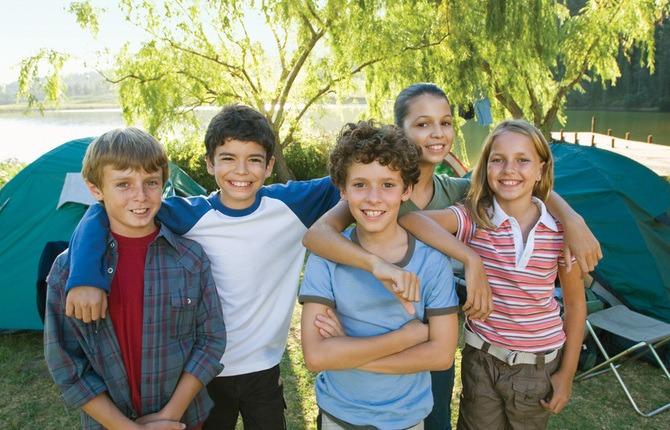
Tips on finding a summer camp
In the dead of winter, with heads buried in piles of homework or deep in a scarf, kids can only reminisce about days spent diving, splashing, hiking, running and simply relishing the sun at summer camp.
The time to make summer plans is quickly approaching – and many experts, families and former campers see camps and their lifelong benefits as an excellent way for children to make the most of their summer. Camps are considered a good solution to the growing concern about raising bubble-wrapped kids whose parents are overly protective and keep them from exploring their potential. With the country facing a crisis with inactivity, childhood obesity and nature-deficit disorder, camps are becoming an integral part of summer vacation as parents realize the importance of an active lifestyle, outdoor activities and independent living for their children. And with a growing number of camps, charities and tax breaks providing more financial aid than ever before, camps are more inclusive and accessible now for families, regardless of financial background, and spots can fill up quickly. What’s more, camps today are evolving from places known for “roughing it” to family vacation spots, or places where children can enjoy high quality facilities, accommodation, food, attractions and vacation destinations.
Families looking for a summer camp must begin their search as early as possible in order to snag the one that will provide their kids with the right activities, atmosphere and friends to complete the summer experience.
1. Choose a type of camp
The choices in the type of camp go far beyond day vs. overnight. Traditional camps offer the quintessential camp experience – think canoes, campfires, cabins and mess halls, and a blend of sports, artistic and social activities. Specialized camps provide a more immersive opportunity to practice a certain sport, art, educational field, or language. Fitness camps instill valuable lifestyle habits, faith-based camps provide spiritual guidance in a casual environment, and special needs camps are designed to accommodate unique children and their necessities. Family camps are also becoming a popular option to strengthen family bonds.
2. Create a wish list
Parents and children should discuss their camp options together to come up with a wish list for priority location, activities and amenities. Is the proximity of a camp important, or does your child have their heart set on canoe portage trips? As part of this list, families can determine a rough budget. An Internet search should follow, which will provide a number of potential camps. A useful tool is the search engine found on www.ourkids.net which allows users to select different options to easily target their search.
3. Talk to the camps
A crucial step is talking to camp directors about their specific philosophies, programs and policies. Calling or emailing each potential camp will work, but what’s even more effective is to speak in person at one of the various camp fairs that happen around the province this time of year, such as the Our Kids Camp Expo on Sunday, February 26 at Roy Thomson Hall in Toronto. Admission is free with registration at www.CampExpo.ca
Some important questions to ask camp directors are:
What are the camp’s goals? What is the schedule like? What is their background and experience, and do they have references? What is the camp’s staff-to-camper ratio? What kind of staff training is provided? What percentage of campers and staff return? How does the camp ensure the safety and security of its campers? What medical facilities are available? What kind of transportation is available? What is the food like, how is it prepared, and does the camp accommodate campers with allergies? What is the policy about packages, letters, and calls from home? How does the camp deal with individual needs and differences, homesickness or bullying? What kind of financial aid is available?
Some camps may be able to connect you to current families and campers who will be valuable resources for first-hand information, or else they can be found at camp expos. They can provide another perspective on the camp, its staff, activities and amenities, and general attitude. This is also a great chance to involve the kids in the process, as they can chat with other children to get to know their future campmates.
A final step is to visit the campgrounds. This may not be possible depending on the camp’s location, but seeing the activity areas, living accommodations, and meeting other staff members can give families the best grasp of the community a camp can offer.
With so many options, the search for the right camp can be daunting. It may take time and patience, but when a child returns home from a successful session at camp, the rewards will last a lifetime.
Our Kids publishes The Summer Camp Guide, powers the camp search on OurKids.net, and hosts the annual Camp Expo. This year’s Camp Expo will be held in Toronto at Roy Thomson Hall on Sunday, Feb. 26, 2012 from 12 noon to 4 p.m. Register for free admission at www.Campexpo.ca







